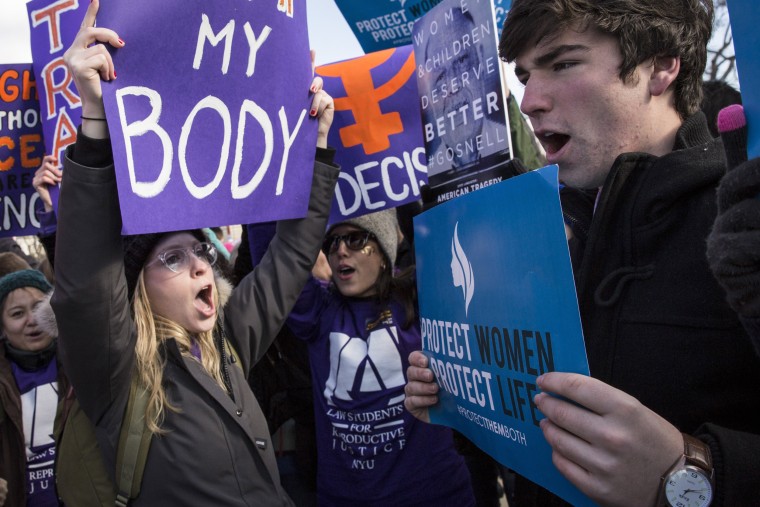The Supreme Court is set to close out its current term Monday with an opinion on what could be the most important abortion case in 25 years — a challenge to one of the nation's toughest restrictions on abortion.
Passed in 2013, the Texas law requires clinics providing abortion services to meet the same building standards as walk-in surgical centers. And doctors performing abortions must have admitting privileges at nearby hospitals.
Related: Texas Accused of Suppressing Key Abortion Data
Since the law was passed, the number of clinics providing abortion services in Texas has dropped to 19 from 42 — and could fall to ten if the state wins.
A federal appeals court upheld the law, and a Supreme Court tie would leave that ruling in place, allowing the state to enforce the restrictions.

The justices could also send the case back to the lower courts to get a clearer picture of how the law is affecting clinic operations.
The Center for Reproductive Rights has called the law "an absolute sham," arguing that abortion patients rarely require hospitalization and that many patients simply take two pills.
Surgical patients undergo a ten-minute procedure without general anesthesia in the outpatient setting of a doctor's office or clinic, the group said, and complications from abortion are extremely rare.
Texas has defended the restrictions, saying that states have wide discretion to pass laws in areas where there is medical and scientific uncertainty. The state said the law was passed "to ensure patient safety and raise standards of care."
The restrictions in Texas represent a new front in efforts to restrict abortion by focusing on protecting the health and safety of the mother rather than the life of the fetus.
At the heart of the case is the standard for assessing abortion limits first announced by the Supreme Court in 1992. State laws cannot create an "undue burden" on a woman's constitutional right to terminate her pregnancy before the fetus attains viability, the court said then.
A law imposes such a burden, the court said in the case of Planned Parenthood v. Casey, if its "purpose or effect is to place substantial obstacles in the path" of a woman seeking to exercise that right.
Just eight justices are taking part in cases following the death of Justice Antonin Scalia in February. President Barack Obama has nominated federal appeals court Judge Merrick Garland to take Scalia's place, but Garland has not received a hearing or a vote in the Republican-controlled Senate.
